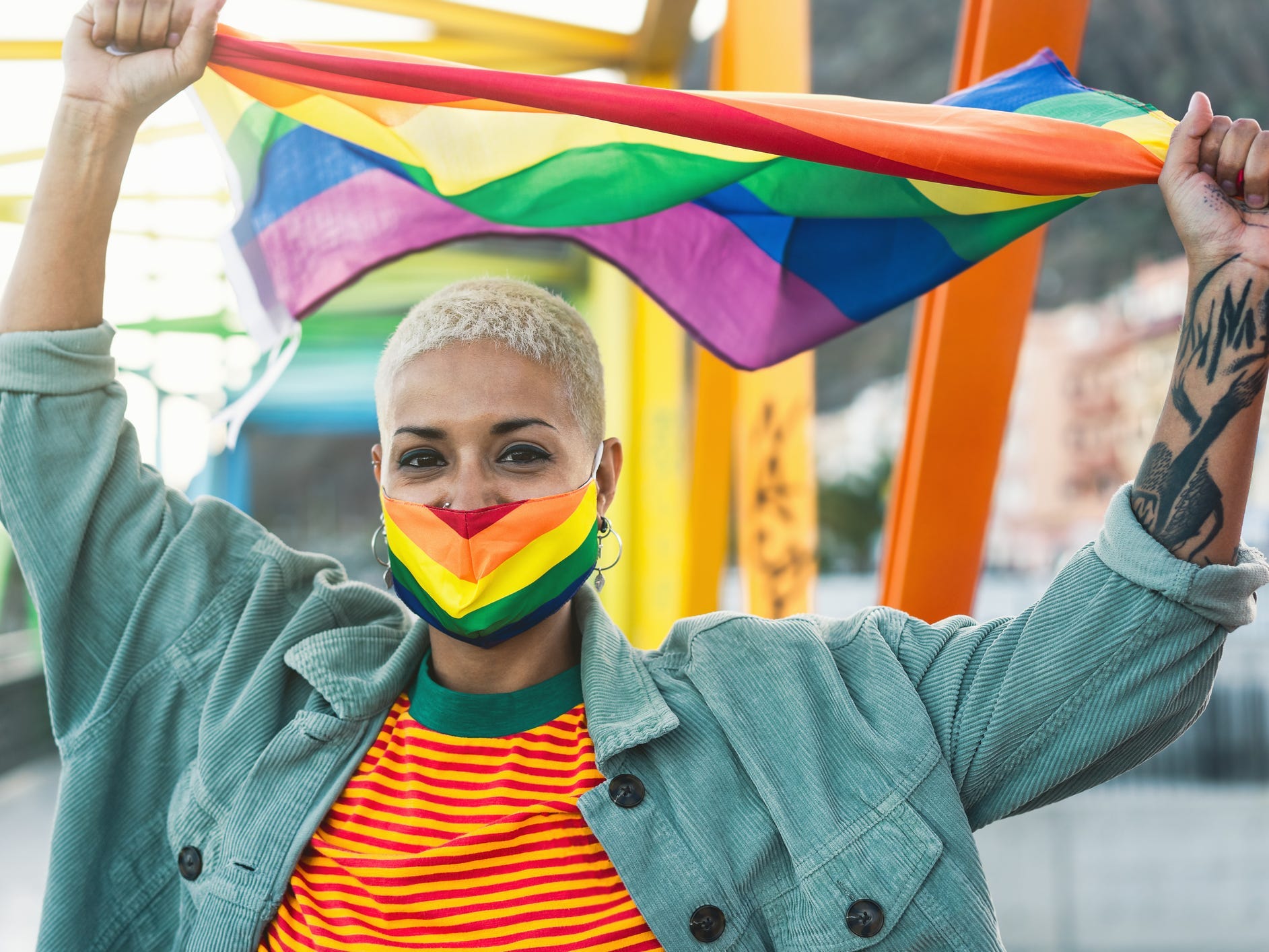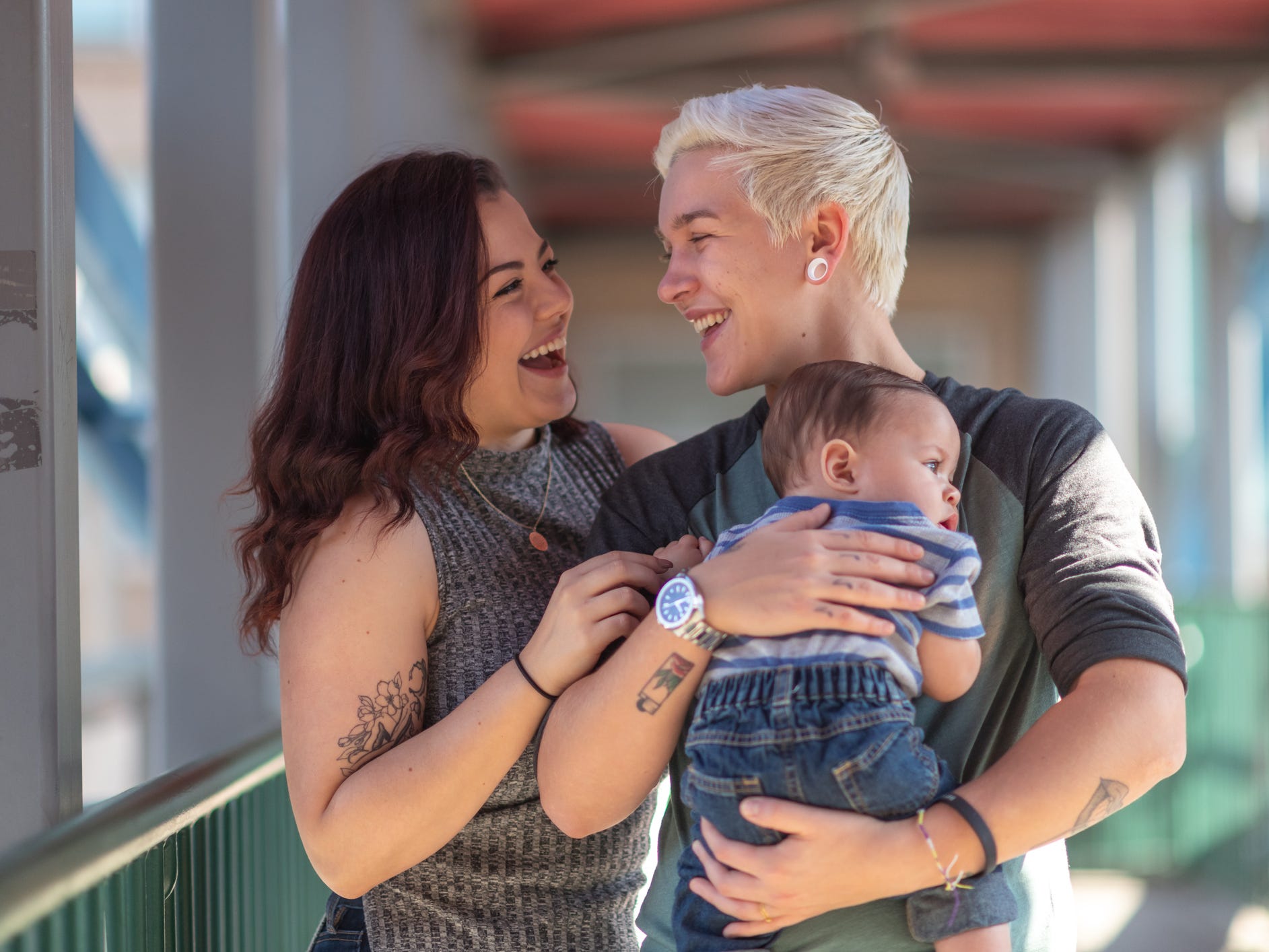
- Millennials are more likely to push back on gender stereotypes than Gen Z, a survey found.
- Younger people in genera are helping drive a shift away from binary thinking about gender.
- Overall, 51% of those surveyed said traditional gender roles will seem outdated in 10 years.
- Visit Insider’s homepage for more stories.
Younger Americans are often assumed to be the most progressive when it comes to ideas about gender and sexuality. Gen Z – aged 18 to 24 – are more likely to identify as LGTBQ+, according to recent research.
But it’s millennials (Gen Y) that most strongly push back on gender stereotypes, according to a new survey from the marketing insight agency Bigeye.
Surveying more than 2,000 US adults across age groups, locations, and socioeconomic backgrounds, researchers found that Generation Y (25-39 years old) had the highest rates of opposition to the traditional gender binary.
Millennials were also the most likely of any age group to think that the next decade will see a shift away from gendered stereotypes, even more than their younger counterparts.
However, both Gen Z and Y are far more likely to think of gender as a spectrum (and nonbinary or gender-neutral products and resources) than Americans aged 55 and older. That signals a potential shift in interest away from gender-based advertising for products like clothing, personal care products, and even children’s toys.
Millennials are slightly more progressive on issues like traditional gender roles and gender-neutral bathrooms, data showed
The Bigeye survey found that true to expectations, a majority of Gen Z-ers to be open-minded about gender.
But millennials were even more likely to hold those views - 56% of Gen Y said they thought gender roles are outdated, compared to 50% of Gen Z.
People from Gen Y were also significantly more likely to support the inclusion of gender-neutral bathrooms in public places than any other age group. 48% of Millennials said they thought bathrooms should be gender neutral, compared to just 38% of Gen Z.
Millennials are more likely to support gender-neutral parenting
The study also found that Gen Y-ers were more likely to be financially stable and thinking about the future, particularly the future of their children.

They were the most likely of any group to support non-gendered toys and books for children. A majority of Gen Y were also in favor of school programs like those in Sweden which call children by their first names and avoid gendered pronouns or nouns like "boys" and "girls" in school.
Younger people in general support moving away from gendered stereotypes, including in advertising
Across age groups, a majority of people surveyed agreed that Americans will likely move away from gendered assumptions in our work, our identities, and our products in the next 10 years.
People from Generations X, Y, and Z were equally likely to be in favor of dropping gender-based advertising on personal care products.
"Toiletries are constantly gendered and it is completely unnecessary. They should be labeled with the qualities of the product and the fragrance, if any. No mention of male or female is needed," one Gen Y respondent wrote.
In contrast, people aged 55 and up were more likely to see the benefit in keeping gendered distinctions in marketing, with 19% of Boomers and 23% of the Silent Generation in support of different products for women and men.
Millennials also overwhelmingly supported ads that show men and women with similar capabilities and roles - 80% of Gen Y approved of this, compared to 67% of Gen Z and 69% of Boomers.
One thing everyone agreed on, though - Gen Z is definitely the most informed age group when it comes to gender identity. A majority of people across all age groups agreed with this.
LGBTQ-identified participants were more likely to have faith in the next generation, with 82% of queer millennials and 88% of queer Boomers saying that Gen Z is better informed on nonbinary and transgender identities.